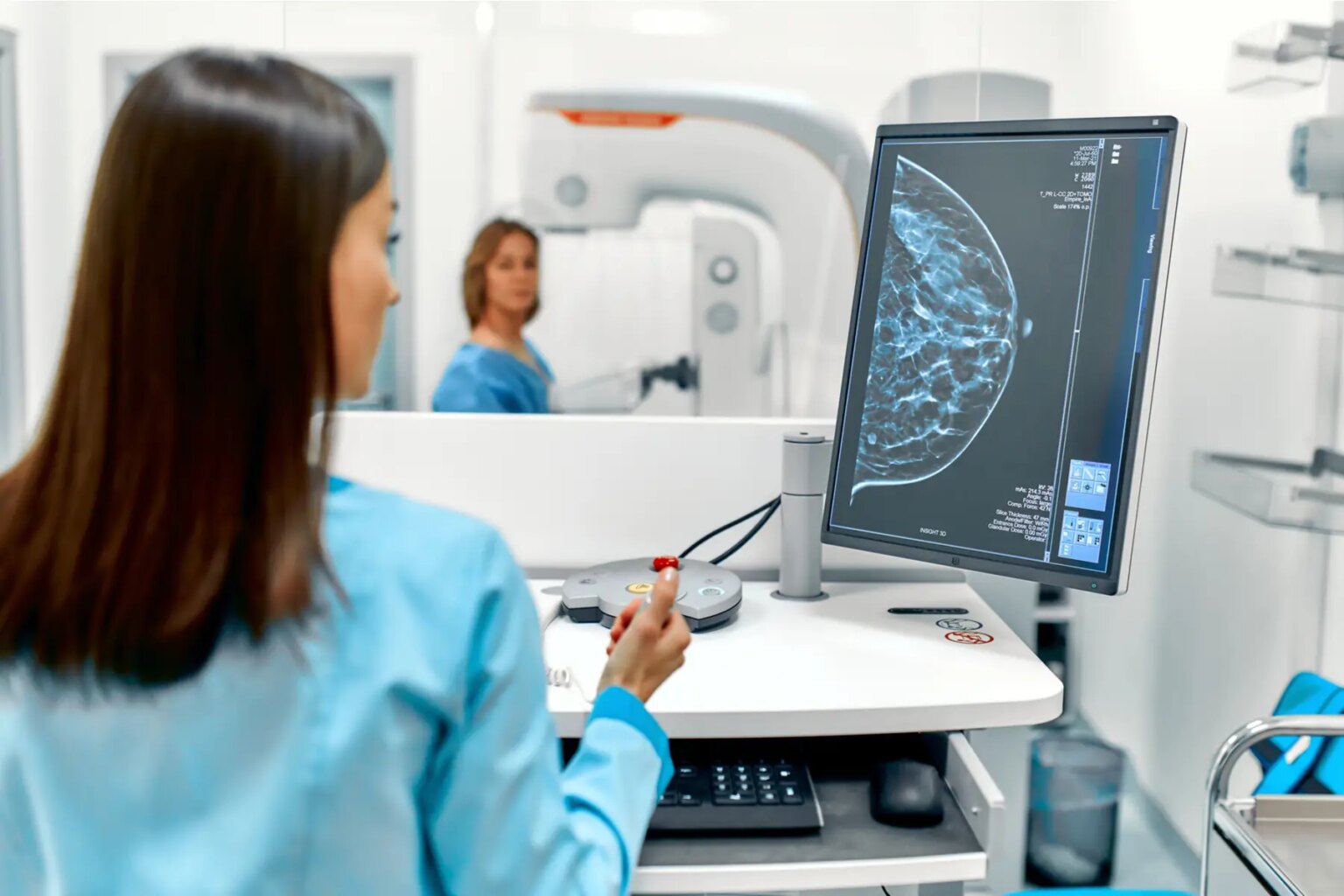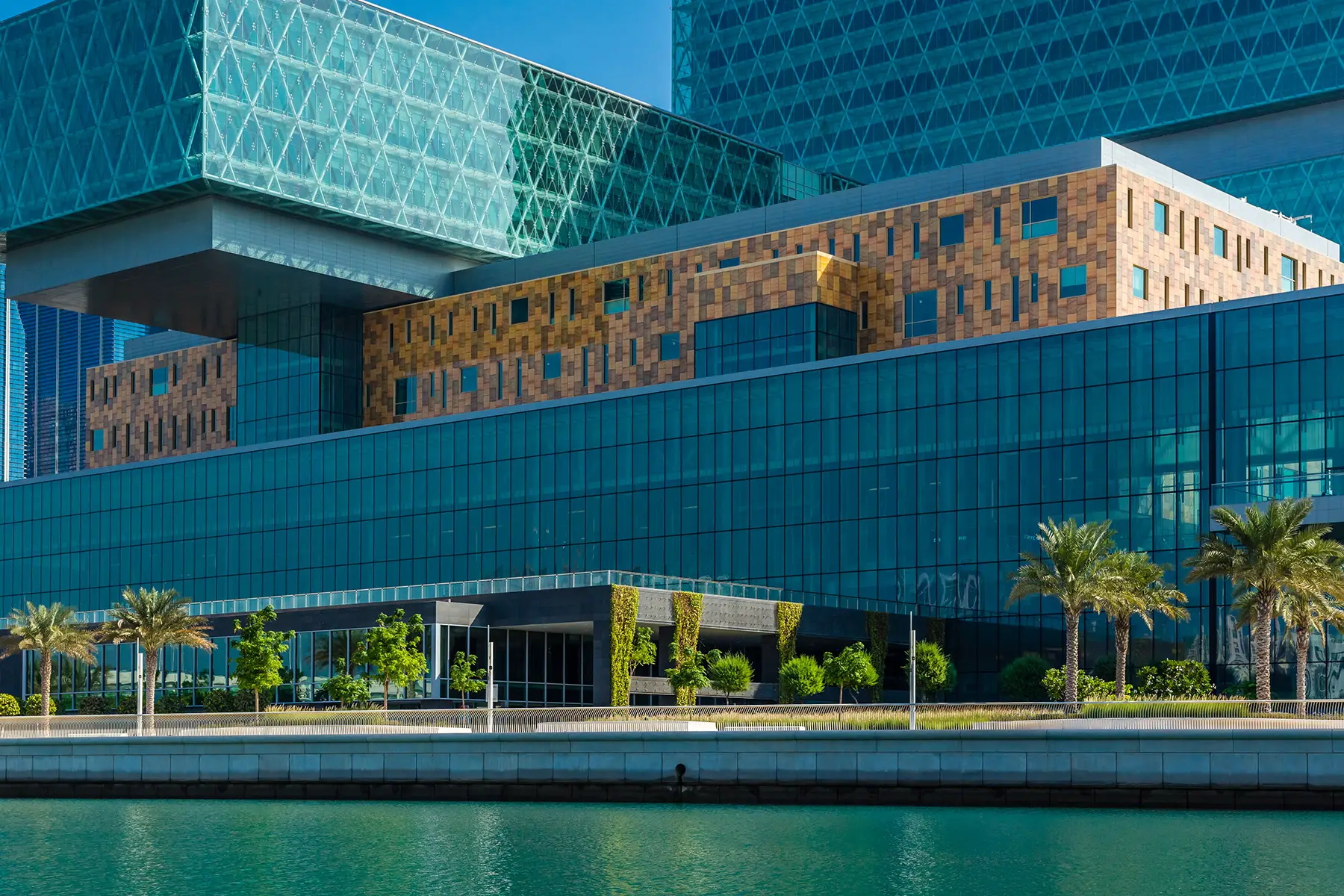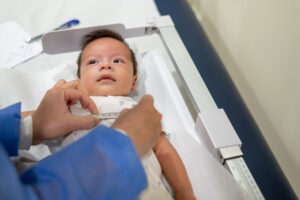The UAE has a high-quality healthcare system that offers relatively easy access to sexual healthcare. That said, the country’s conservative laws and attitudes toward premarital sex and the LGBT+ community affect how people access care. Still, sympathetic doctors will offer patients confidential advice and treatment.
The level of sexual healthcare that expats can access in the UAE depends mainly on their private health insurance, which their employers must provide them with by law. The coverage they have will vary depending on their policy, and some are more generous than others when it comes to sexual healthcare services.
To help you take care of your sexual health needs while living in the UAE, this article explains the following:
- Attitudes towards sex and sexuality in the UAE
- Accessing sexual health services in the UAE
- Insurance for sexual healthcare in the UAE
- Contraception in the UAE
- Pregnancy and childbirth in the UAE
- Abortion in the UAE
- STIs and STDs in the UAE
- Erectile dysfunction treatment in the UAE
- Feminine hygiene products in the UAE
- Cancer screenings in the UAE
- Services dealing with sexual problems
- Services dealing with sexual abuse and assault
- Young people’s sexual health
- LGBT+ sexual health in the UAE
- Useful resources
Orient Insurance
Orient Insurance provides a range of insurance products, including medical coverage, for internationals in the UAE. With over 40 years of experience in the country’s insurance market, they offer policies for your health, vehicle, home, and much more. When moving to the UAE, trust Orient Insurance to protect what matters.
Attitudes towards sex and sexuality in the UAE
The Islamic Sharia principles – the legal practice derived from the teachings of the Quran – support the UAE’s conservative attitudes towards sex. Therefore, discussions about sex, sexuality, and sexual health in the UAE remain largely taboo. As a result, references to sex in the media and public life are generally minimal and only occur within the context of married, heterosexual couples.
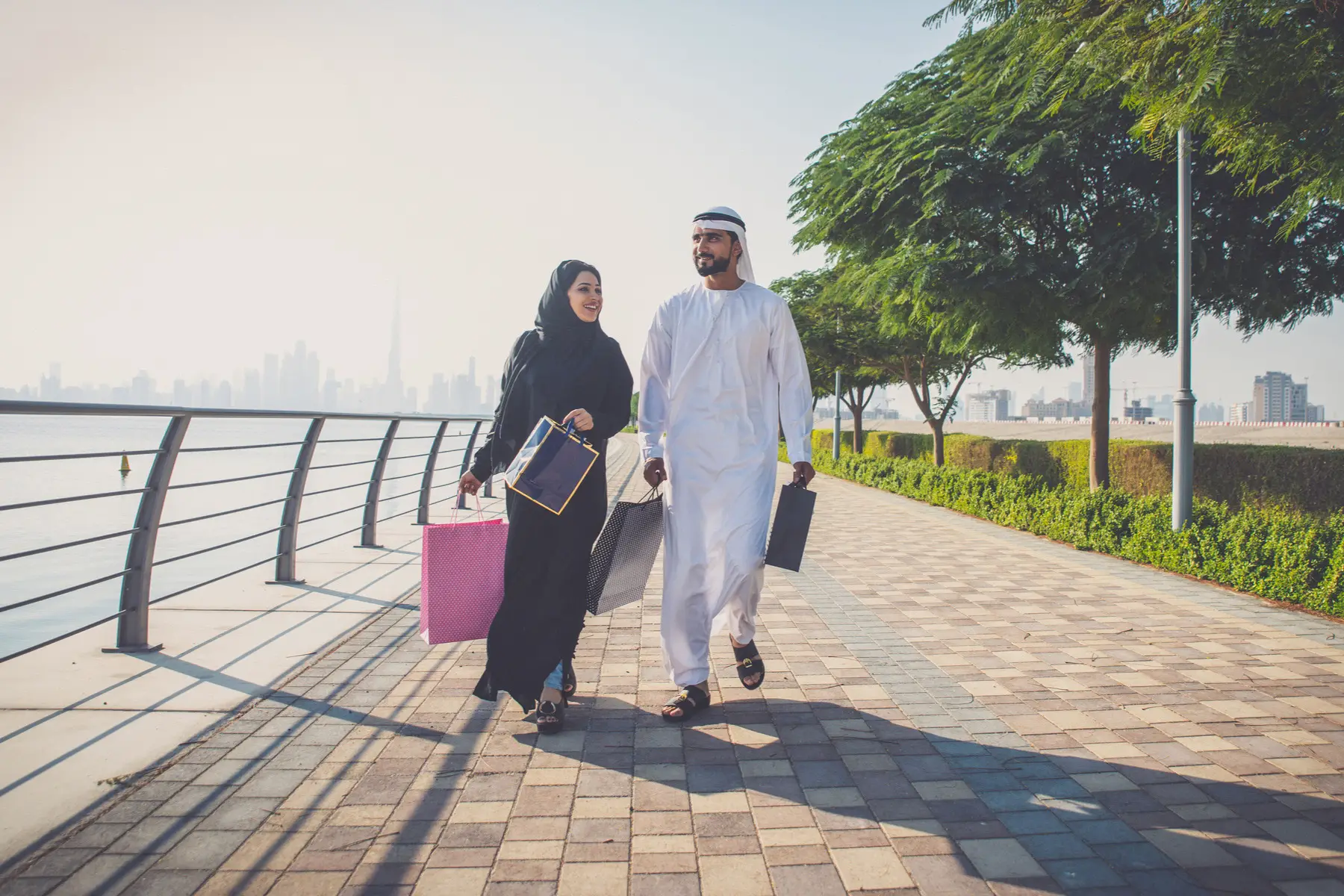
While homosexuality and cross-dressing are illegal in the UAE, there is a more relaxed attitude towards private sexual activity. In fact, in November 2020, new laws were passed allowing unmarried couples to live together, effectively decriminalizing premarital sex. Prior to this, prosecutions were rare, and the authorities often turned a blind eye if couples were discreet. But the new law formalized the cultural norm in the UAE.
Because there are no laws banning two people of the same gender from renting a property together, same-sex couples can usually live together discreetly, too. Expats can also expect the same level of discretion and confidentiality when it comes to accessing sexual health services in the UAE.
Accessing sexual health services in the UAE
Expats can access sexual health services via the health insurance-based system in the UAE. By law, employers must offer private coverage for foreign staff who have residency visas. That said, coverage for sexual healthcare can vary depending on the employer’s policy. Nevertheless, expats can always pay extra for services that it doesn’t cover.

Accessing sexual health services through workplace insurance is fairly straightforward. Once you share your insurance details with the medical provider, there are usually two options. You will either pay for treatment and make a reimbursement claim with receipts via your employer, or the service provider will bill your insurer directly.
Just bear in mind that you may need to show proof of your marital status, such as your Emirates ID card or marriage certificate, to access some services. For example, some clinics will only provide birth control, such as IUDs, to married women. Notably, if you work for yourself, you will need to arrange and pay for your own health insurance. Foreign tourists should also take out travel insurance if they need to see a doctor while visiting the UAE.
General practitioners (GPs) and specialists
Expats can make appointments with general practitioners (GPs), who may refer them to a specialist, such as a gynecologist or a urologist, if necessary. Generally, bigger medical centers that have a wide range of specialties usually include specialized clinics for sexual health services, too. And you can make appointments at these clinics without needing a referral from a GP.
While pharmacies don’t provide extensive sexual healthcare services, they do dispense prescription medications. Furthermore, some, but not all, will sell birth control pills without you needing a prescription. Pharmacies also sell erectile dysfunction medication, such as Viagra and Cialis, over the counter. Other sexual health products that are readily available in pharmacies include condoms, spermicide, pregnancy tests, feminine hygiene products, and personal lubricants.
Insurance for sexual healthcare in the UAE
UAE nationals receive government-funded healthcare. Conversely, employers must provide health insurance for all foreign employees, but there is no guarantee that it will cover all their sexual health needs. Again, it all depends on the insurance company and policy your employer chooses to use. Therefore, you may need to arrange additional health insurance or pay for treatment if your policy does not cover what you require.
Notably, insurance might not cover sexual health services, such as abortion and gender reassignment surgery, at all.
Some of the main private health insurance providers in the UAE include:
APRIL International
Looking for expat-friendly health insurance in the UAE? APRIL International has a long history of providing health coverage tailored to the unique needs of the expat lifestyle, ensuring peace of mind for you and your family. Whether you’re relocating to the UAE or simply staying short-term, APRIL International has the right policy for you.
You can compare private health insurance providers in the UAE and get free quotes on our special health insurance page.
Contraception in the UAE
According to a 2020 report by the United Nations Department of Economic and Social Affairs, 59.5% of women in the UAE have their birth control needs met by modern methods. Family planning services are available from GPs and health centers, rather than stand-alone family planning clinics that are common in many other countries. Pharmacies also sell prescription and over-the-counter contraceptive products.
Oral contraceptive – the pill
Historically, women in the UAE could buy birth control pills over the counter at any pharmacy, as no prescription or proof of marriage was required. However, birth control prescriptions have become more strictly enforced in recent years, especially in Dubai and Abu Dhabi; although some pharmacies continue to sell them.
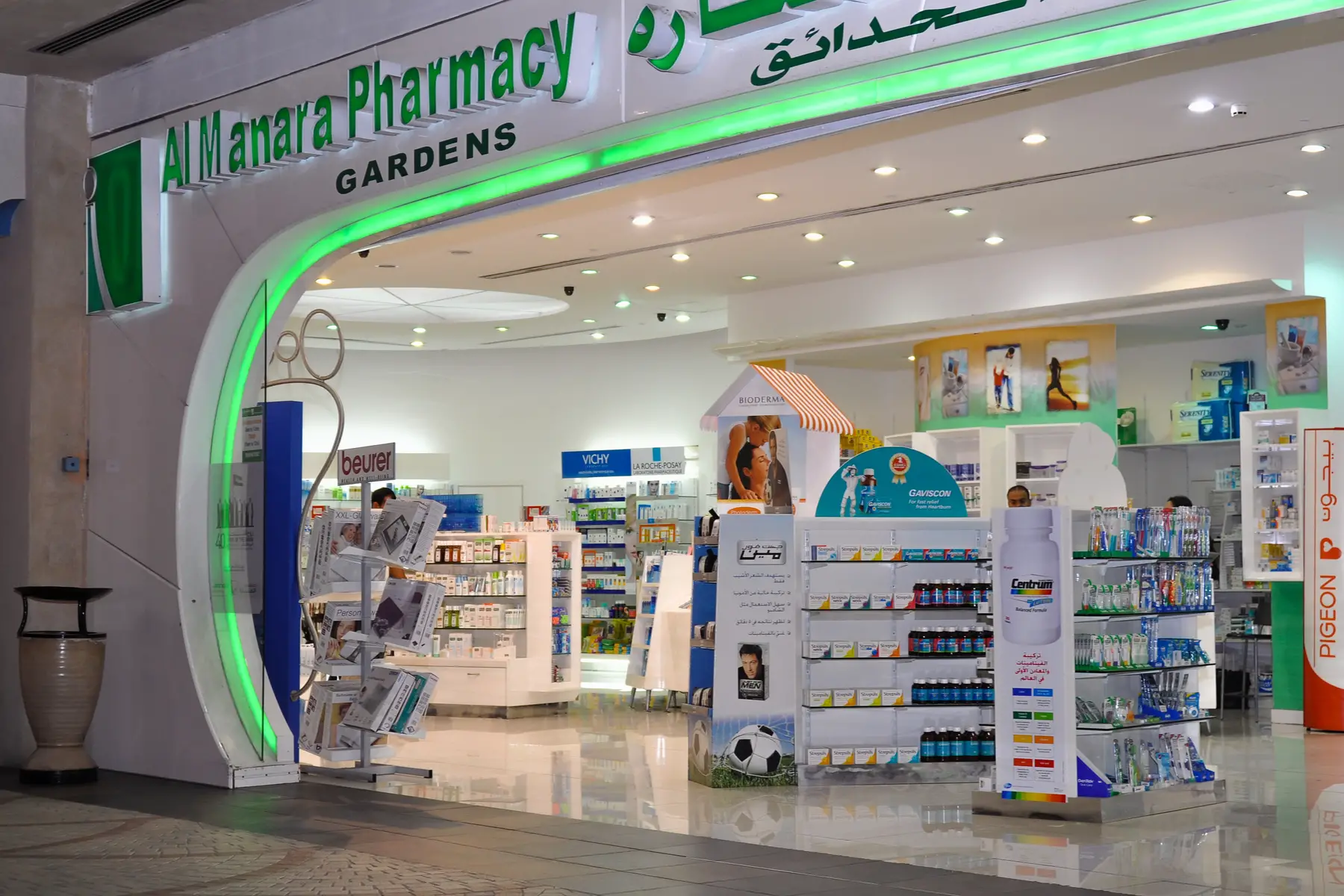
Nevertheless, pharmacies will still ask to see your Emirates ID card, which all expats must have by law, to check your marital status. Notably, it is easier for unmarried women to access the pill if a doctor prescribes it for non-contraceptive reasons; for instance, following the diagnosis of heavy or irregular periods. Birth control pills cost around AED 30 per month.
The morning-after pill
The morning-after pill is illegal in the UAE. However, this is largely due to the misconception that it is an abortifacient, i.e. a medication that can cause a miscarriage or medical abortion. And abortion at any stage is prohibited in the country. However, there are several forms of contraception that you can access in the UAE.
Condoms
Condoms have multiple sexual health benefits, including preventing pregnancy and sexually transmitted diseases. They are readily available in pharmacies, supermarkets, petrol stations, and small grocery stores. Prices vary depending on the type and brand and usually cost between AED 40 and AED 70 for a box of 12.
The IUD
IUDs are generally only available to married women in the UAE. However, like the pill, a gynecologist can fit an unmarried woman with an IUD to treat other sexual health problems, such as menstrual pain or endometriosis. Depending on the clinic, this can cost more than AED 1,000.
Some insurance policies will cover IUDs, but if not, you will have to pay for it yourself. Married women can usually be fitted with one without paying out of pocket. However, some policies will only cover this service for unmarried women if the IUD is for reasons other than contraception.
Vasectomies and female sterilization
Permanent birth control is legal in the UAE, and these procedures usually cost around AED 5,000. However, access varies depending on the doctor and your level of health insurance coverage. Generally speaking, married men can easily access a vasectomy without consulting their wives. Married women, on the other hand, have reported issues with tubal ligation; i.e., female sterilization, which is better known as getting your tubes tied. As such, hospitals often ask for No Objection Certificates (NOC) from their husbands. This is a legal document stating that her husband is fully aware of the procedure and does not object.
Pregnancy and childbirth in the UAE
The reproductive aspect of sexual healthcare is generally quite comprehensive for insured expats in the UAE. Most health insurance policies offer pregnancy and childbirth coverage which includes check-ups during pregnancy and hospital stays for vaginal and Cesarean section deliveries. Notably, the rate of Cesarean deliveries is on the rise in the UAE. While estimates vary, a 2019 study by Abu Dhabi’s Zayed University indicates that 30.2% of live births in the country occur this way.
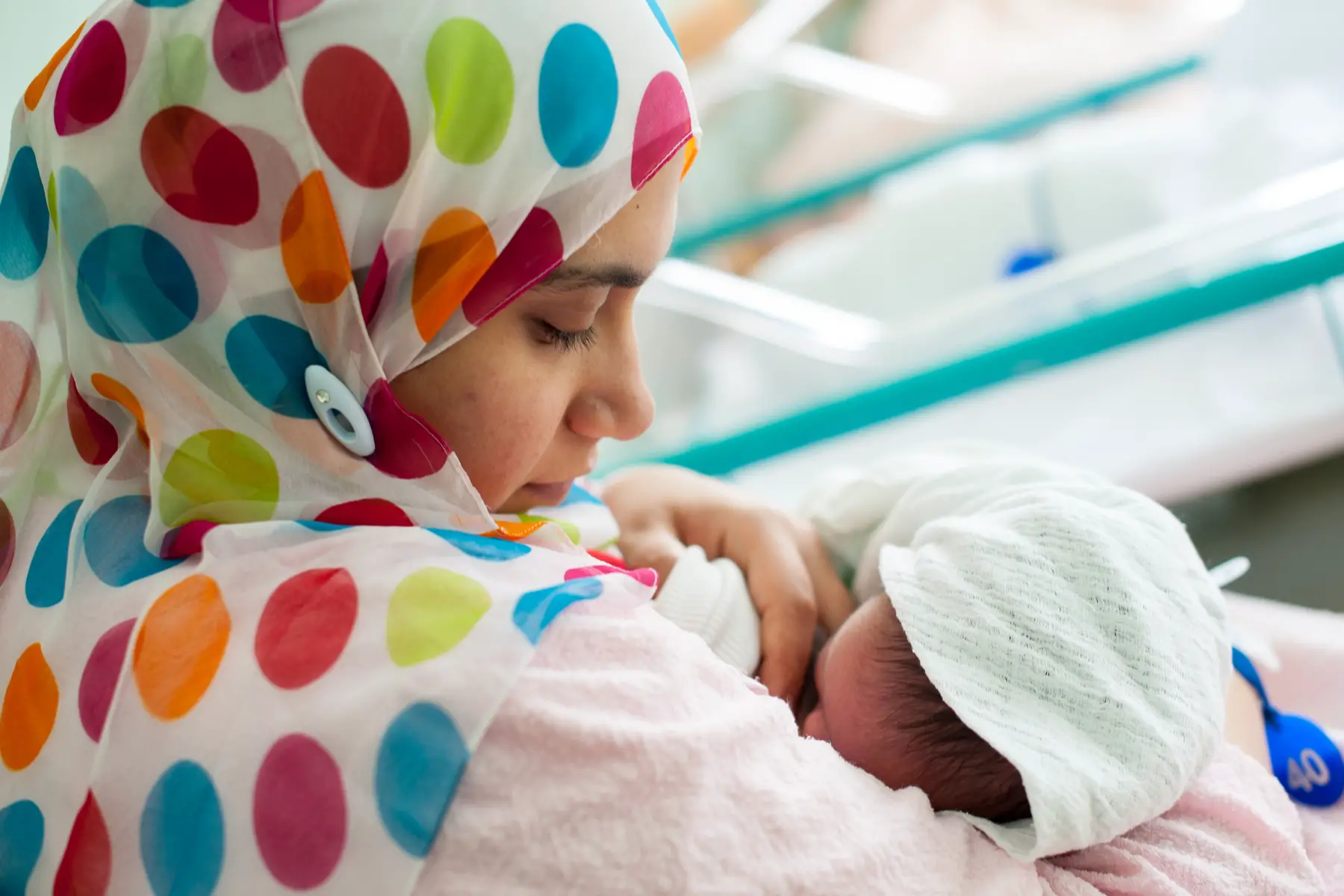
Fertility treatment, such as IVF, is available at private clinics in the UAE. However, because not all health insurance policies cover this, many women self-fund these services. Fertility treatment can cost anywhere between AED 3,000 for intrauterine insemination and AED 15,000 or more for IVF.
It is important to be aware that it is difficult for unmarried pregnant women to access maternity services in the UAE. Generally, the family will force them to get married, go to another country to give birth, or have an abortion. For married women with health insurance, on the other hand, hospitals generally offer a very high standard of pregnancy and birth care.
Abortion in the UAE
Abortion is illegal in the UAE. However, there are limited exceptions if the pregnancy puts the mother’s life at risk or if there is evidence of unsurvivable fetal abnormalities. In the latter case, the abortion must be performed before the fetus is 120 days old; that is around 17 weeks or three months gestation. Under the country’s penal code, punishments for having or performing an abortion outside these limitations include fines and imprisonment. Women seeking an abortion for other reasons have only two choices. They can either carry the pregnancy to term or travel to another country where abortion is legal.
Sadly, there have been distressing media reports of desperate women undergoing illegal abortions in the UAE. In 2011, a special report in Gulf News highlighted a rise in unlawful terminations. And more recently, UAE abortion laws featured in a Huck magazine report on pregnancies out of wedlock during the COVID-19 lockdowns. While illegal abortion cases are rare, they are extremely dangerous and have led to deaths or serious complications. Everyone involved in these procedures risks arrest and in 2021, two doctors were jailed for providing abortions.
STIs and STDs in the UAE
Sourcing statistics on sexually transmitted infections (STIs) and diseases (STDs) in the UAE is challenging, which is partly due to the lack of openness regarding sexual health. That said, available data indicates that figures are low and academic studies tend to attribute most infections in the country to expats.
Most GP surgeries and healthcare clinics in the UAE offer confidential STI and STD testing services. Some health insurance policies cover these, but if not, you will need to pay for them yourself. GPs can also refer patients to sexual health specialists. Despite the UAE’s conservative values, doctors are generally respectful, sympathetic, and discreet when it comes to treating patients with STIs and STDs.
Modern STI and STD treatments are available in the UAE. This includes prescription medications, such as antibiotics, anti-viral treatments, and topical creams. Antiretroviral drugs are also available for people who are HIV positive. However, being HIV positive can result in deportation for expats, as a negative HIV test is required for residency.
Campaigns by government agencies and private clinics have promoted the importance of pap smears for early cervical cancer detection. Most health insurance will cover these screenings; however, if human papillomavirus (HPV) is detected, it is classed as an STD, and many health insurance policies will not cover further treatment. Testing usually costs between AED 200 and AED 400.
HIV/AIDS in the UAE
According to a 2020 UNAIDS report, recent HIV/AIDS figures for the UAE are incredibly low. Less than 1,000 adults and children live with the virus in a country of around 10 million people. In 2017, 0.1 people per 100,0000 died of AIDS-related illnesses and in 2014, 340 people were on antiretroviral treatment. In 2019, 13 pregnant women were HIV positive.
Every international applicant must test for HIV as part of the medical assessment for their residency visa. And if the test is positive, the state will decline the visa application. Furthermore, if an international resident becomes HIV positive during their time in the UAE, the state will also deport them. In fact, doctors are legally obliged to report patients with deportable conditions, including HIV, hepatitis B, tuberculosis, and leprosy.

Testing for HIV is readily available at most clinics and health centers in the UAE. Since 2016, uninsured expats and UAE nationals have been legally allowed to receive free HIV treatment. However, in practice, this provision only applies to citizens because of the deportation laws.
Erectile dysfunction treatment in the UAE
Men can access erectile dysfunction treatment from a wide range of clinics in the UAE. Treatments include medications, injections, surgery, and physical therapy such as Kegel exercises. However, patients will have to check their health insurance and fund some or all of the treatment themselves. Popular erectile dysfunction medications, such as Viagra and Cialis, are also available over the counter and cost around AED 40 to AED 50 per tablet.
Feminine hygiene products in the UAE
Feminine hygiene products such as tampons, sanitary pads, menstrual cups, reusable pads, and period underwear are widely available in the UAE. Supermarkets, pharmacies, and grocery stores sell these products, but the range is better in larger stores. Many expats will also recognize international brands on the shelves. There is no age limit or ID requirement to buy feminine hygiene products, but health insurance doesn’t cover them.
Disposable products are priced around AED 15 to AED 20 but vary depending on the brand and the type of product. Period underwear costs around AED 80 per pair.
Cancer screenings in the UAE
Fear, shame, and embarrassment surrounding cancer screening have led to high rates of the disease in the UAE. This stigma is generally attributed to a lack of openness about health issues, especially sexual health. Sadly, many cancers are only diagnosed in the terminal stage. Breast, lung, and colon cancer are the top three death-related cancers in the UAE. In 2020, there were 4,807 new cancer cases and 1,896 deaths; with men having an 8.4% risk of developing cancer before the age of 75 and women having an 18.2% risk.
Government health agencies have launched campaigns to encourage UAE nationals to be aware of cancer symptoms and to have regular screenings. Such programs have been underway for some time now. In 2012, for example, the Department of Health launched its Cancer Wave Health Promotion Project to increase screening for breast, cervical, and colorectal cancers. Notably, health insurance covers these free cancer screening programs across the UAE.
How to get screened for cervical cancer
Between 2012 and 2018, cervical cancer death rates doubled in the UAE and at least 108 women (aged 28 to 56) were diagnosed each year. However, thankfully, HPV vaccination programs in the UAE are proving to be effective. For instance, from 2019 to 2020, 13,874 women were vaccinated in the UAE, following a countrywide rollout in 2018.
While health insurance covers pap smears, a diagnosis of HPV, a precursor for cervical cancer, is considered to be an STD. Therefore, health insurance may not cover subsequent treatment. As a result, patients have to self-fund their care. The Ministry of Health recommends that all women between 25 and 65 years of age have pap smears every three years. Most clinics and health centers offer these free of charge to eligible women, regardless of marital status.
Pap smear tests generally take between five to ten minutes. The patient undresses from the waist down so the doctor can gently insert a speculum into the vagina and scrape a sample of cells from the cervix with a small brush. This may cause some brief discomfort. The clinic then sends the sample for analysis and the lab sends the results to the patient.
How to get screened for breast cancer
Breast cancer is the most common cancer among women in the UAE. In 2020, there were 1,030 new cases diagnosed. Notably, breast cancer is more prevalent among Emirati women than expats. Still, the increasing numbers have led to many public awareness campaigns for self-examination and screening from the government. Unfortunately, due to cultural conservatism surrounding the discussion of sexual health, many women don’t request a screening until a tumor reaches an advanced stage. As a result, education programs about breast self-examination now address these taboos.
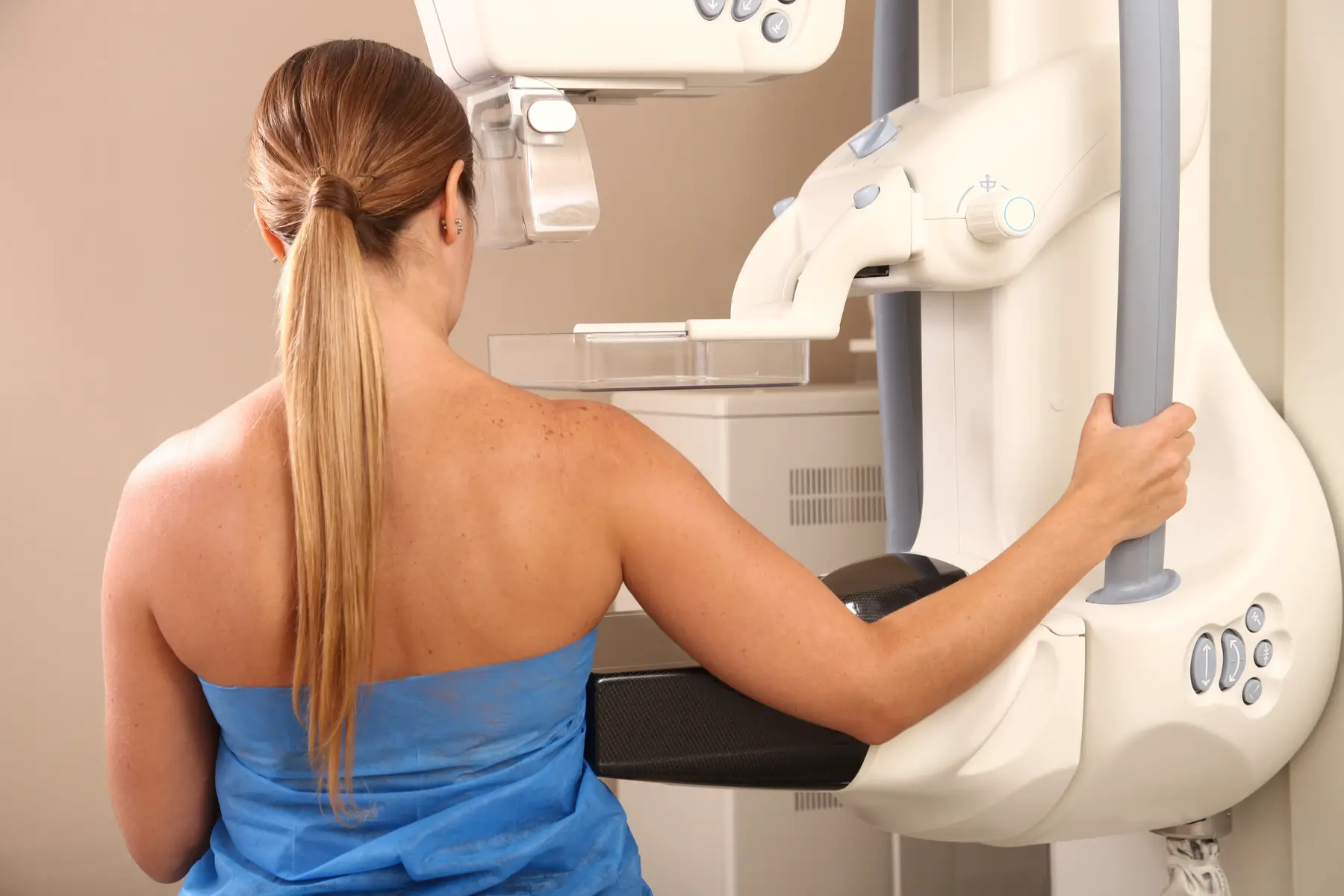
Most health insurance policies cover breast cancer screening and treatment in the UAE, and all treatment is free for UAE nationals. Many clinics and hospitals across the country offer screening. And since 2021, government-funded drives, such as the Pink Caravan campaign, have offered free mobile breast screening at 21 locations in the emirates of Dubai and Sharjah.
The mammogram procedure involves undressing from the waist up so that both breasts can be X-rayed on a transparent plate designed to give a detailed picture inside each breast. It can be painful or cause discomfort but each X-ray only takes a few seconds.
How to get screened for ovarian cancer
Ovarian cancer can be difficult to detect, and many women are not aware of the main symptoms, such as back and abdominal pain and difficulty eating. In the UAE, this is the fifth most common cancer in women, at 5% of all female cancer patients. Ovarian cancer testing and treatment are available on most health insurance policies, and Emirati women receive free treatment and screening.
Most hospitals and clinics that offer women’s health services provide ovarian cancer screening. The screening process usually involves an initial blood test. After that, the medical team may recommend an ultrasound screening if the blood test shows signs of ovarian cancer. Further investigations via X-ray, biopsy, and laparoscopy (keyhole surgery) may be required to confirm an ovarian cancer diagnosis.
How to get screened for prostate cancer
Prostate cancer is the third most common cancer for men in the UAE after lung and colorectal cancer. The rate is 4.5 per 100,000 among Emirati men. Screening is free for Emirati men and covered by most health insurance policies for internationals. Most hospitals and clinics with urology services will offer prostate cancer tests. The healthcare system recommends screening for all men over 50 or over 45 if they are of African descent or have a family history of prostate cancer.
Typically, screening starts with a digital rectal examination, which involves a medical practitioner gently inserting a finger in the rectum to check prostate gland size, shape, and consistency. Other tests include the prostate-specific antigen test, a blood test to check protein levels associated with prostate cancer, scans (MRI scans, ultrasound, or CT scans), and biopsies (a sample is taken from the prostate for analysis).
How to get screened for testicular cancer
Testicular cancer can affect men of any age. However, it is one of the less common male cancers in the UAE, and statistics are scarce. Indeed, 2015 figures show that 32 men were diagnosed with the disease, including seven Emiratis and 25 expats.
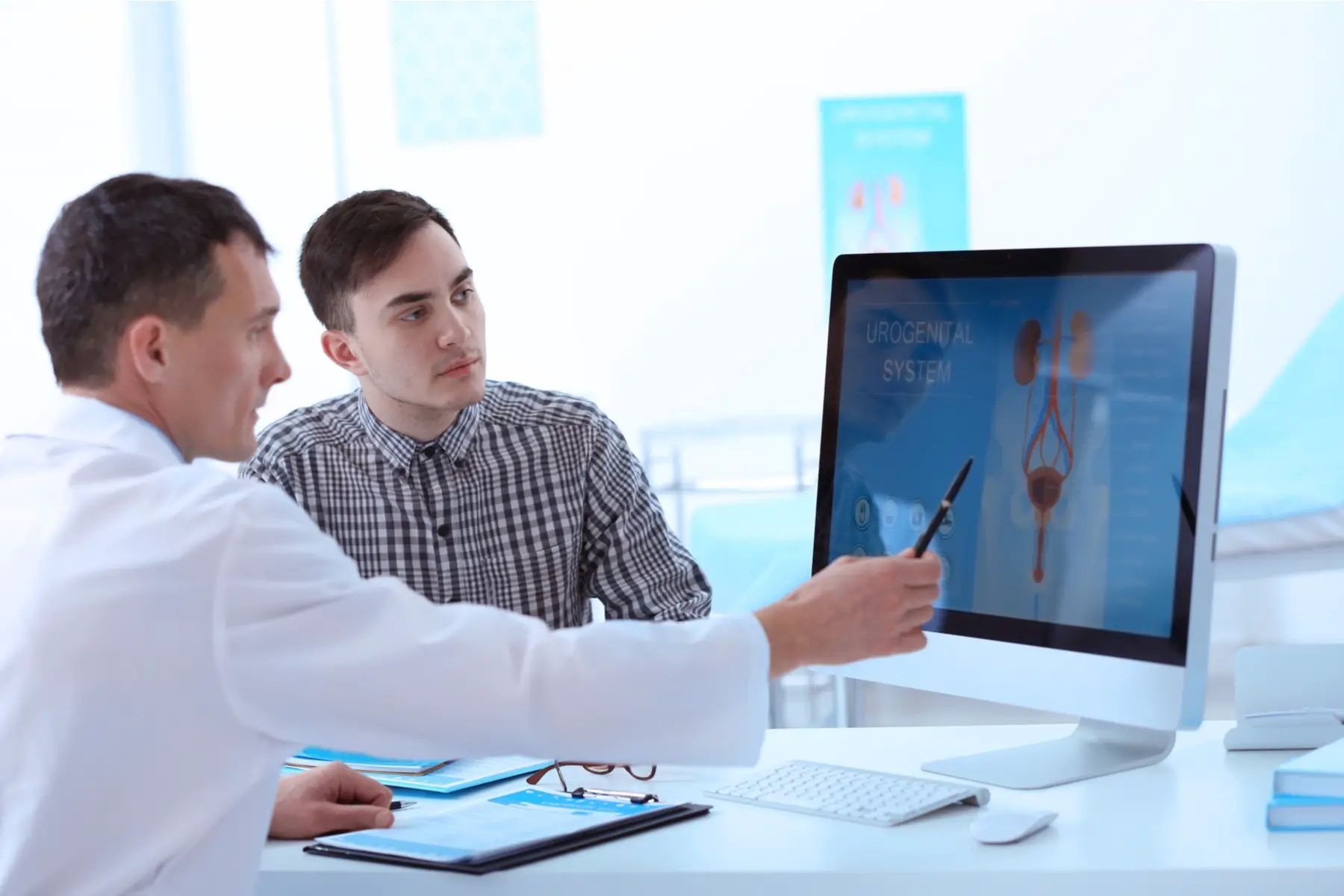
Most of these men first detected lumps or abnormalities in their testicles through self-examination before a screening. Notably, screening is free for UAE nationals and covered by most health insurance policies. However, if the symptoms turn out to be an STD or STI, health insurance may not cover the cost of treatment.
Healthcare professionals perform painless ultrasounds and blood tests to check for tumor markers in the blood. Most hospitals and clinics with urology services will also offer testicular cancer testing.
How to get screened for penile cancer
Penile cancer is very rare, and globally, there were 36,068 reported cases in 2020. Still, awareness of the symptoms is important. These include discharge, swelling, lumps, and changes to the skin on the penis. Screening and treatment are free for UAE nationals and usually covered by health insurance for expats. However, if the symptoms turn out to be an STD or STI rather than penile cancer, health insurance may not cover the cost of treatment.
Most hospitals and clinics with urology services will offer penile cancer tests. After an external physical examination, screening involves a penile biopsy – a small sample taken from the penis for analysis – and medical imaging such as CT scans, MRI scans, X-Rays, or ultrasounds.
Services dealing with sexual problems
While discussing sexual problems openly is restricted in the UAE, help is available for people who need counseling or therapy to improve their sex lives. Expats should check their health insurance policies carefully to see if it covers the cost of such services.
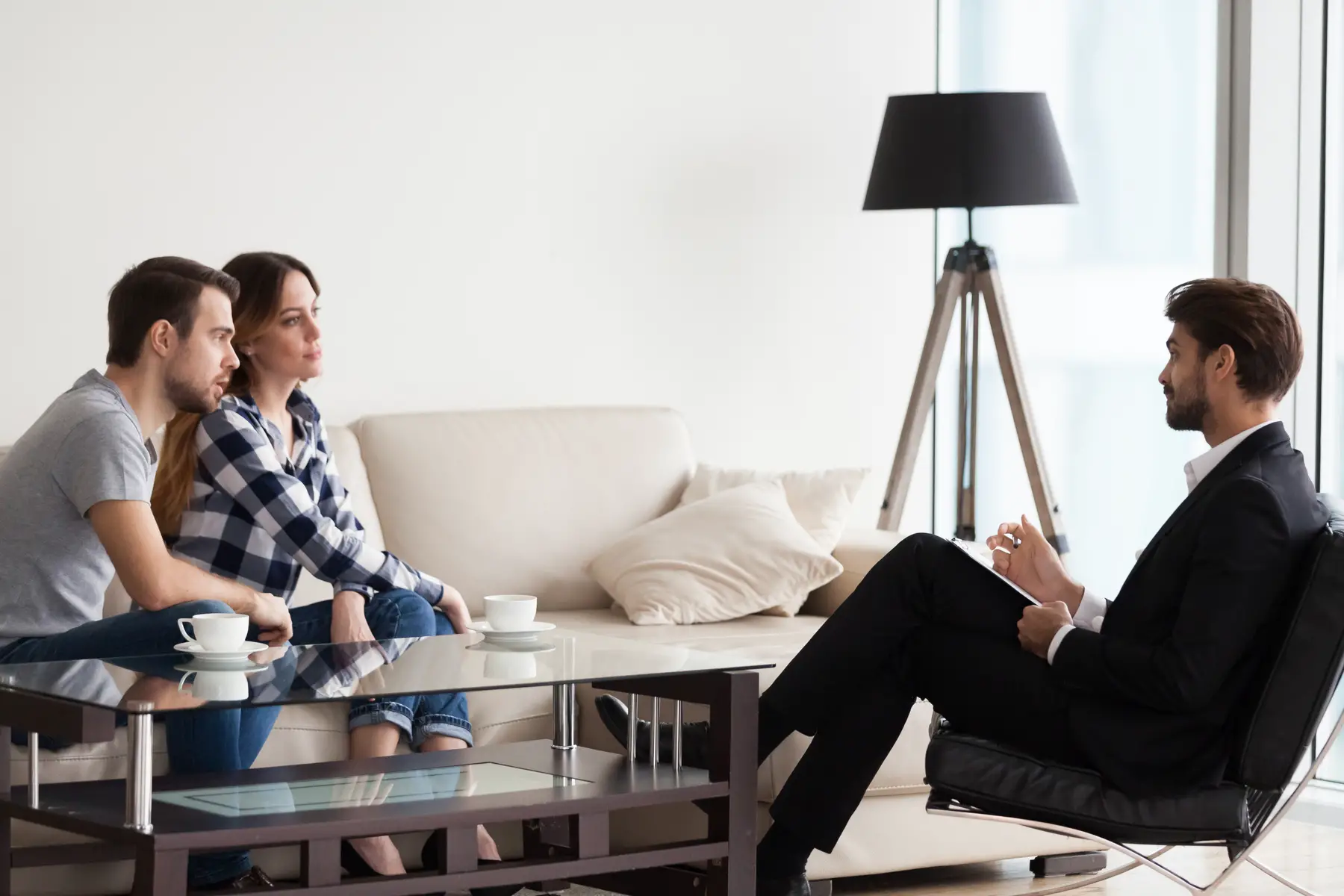
Some psychologists, psychotherapists, and psychiatrists specialize in sex therapy, and some health insurance may cover these treatments under their mental health provisions. That said, it is worth reading the fine print before making an appointment. Counselors are also available to work with people who would like help in this area. However, these are primarily self-funded services.
A few of these specialized mental health professionals include:
- The British Clinic – Abu Dhabi
- Christina Lindea – Dubai
- Enfield Royal Clinic – Dubai, Abu Dhabi
- Nicola Beer – Dubai, Abu Dhabi
- Shamma Clinic – Dubai
- Thrive Wellbeing Centre – Dubai
You can also use the Doctoruna search tool to find mental healthcare or medical professionals that specialize in sexual problems.
Notably, multidisciplinary clinics often include medical practitioners who are trained in psychosexual therapy. However, the cost of these services varies considerably, and sessions tend to range from AED 100 to AED 600.
Services dealing with sexual abuse and assault
Official sexual assault statistics in the UAE are low, accounting for 1.5 rapes per 100,000 women. However, this figure could be artificially low because of under-reporting. Unfortunately, police officers may not have the training to work with survivors or be fluent in English. Therefore, reporting sexual abuse or assault can be a harrowing ordeal for the survivor and often retraumatize them. If you cannot speak Arabic fluently, it is advisable to be accompanied by an Arabic speaker. For internationals, embassies or consulates should also assist with obtaining lawyers, translators, and medical assistance.
Reporting sexual abuse or assault
The reporting procedure in the UAE is as follows:
- File a report: Call 999 or go to a police station to file a report
- Evidence: Keep as much evidence as possible for forensics (e.g., clothes, condoms, or personal care items) and relevant communications (e.g., threatening messages, texts, or emails)
- Open a police case: Keep the case number for reference. Documents will likely be in Arabic, so demand translations. You will have to provide a detailed statement.
- Physical examination: Medical professionals perform physical examinations at a government hospital. Under UAE law, the cost of the examination should not exceed AED 600. Still, health insurance does not always cover this cost.
- Crime scene: Police may take the victim to the crime scene to demonstrate what happened or identify and arrest the attacker
- Arrest: Police will take arrested suspects to the Public Prosecutors’ office within 24 hours. Here, victims will have to make a statement. Notably, the survivor’s identity may be revealed as the accused and the accuser are often in the same room during the investigation.
The timescale from arrest to court judgment varies, and there can be multiple requests for evidence before it gets to court. An open court usually hears cases. If the attacker is not a UAE citizen, punishments include imprisonment, fines, deportation, or a combination of all three.
Support services
There isn’t a dedicated helpline or organization to assist with sexual assault or abuse, but if you have experienced any abuse or (sexual) violence, you can call the Dubai Foundation for Women & Children on 0800111 or text 511. This helpline is free of charge and operates 24/7 across the UAE. All members of the team are empathic and well-trained to offer support, determine the level of urgency, and refer the caller to the most appropriate service. The foundation also provides an email and live chat service.
The Ministry of Interior (MOI) Child Protection Centre oversees and develops all initiatives for the protection of children in the UAE. You can report any child abuse, including sexual abuse or assault, by calling the MOI hotline on 116111 or by visiting its website. Here, you will find a red button at the bottom of the webpage where you can report abuse. The MOI also has an app called Hemayati (Arabic for protect me) which is available for Android and iOS devices.
Furthermore, the Ministry of Education (MOE) launched a Child Protection Unit which you can call on 80085. Alternatively, you can email a report with supporting documents to [email protected].
To summarize, the helplines are:
- Dubai Foundation for Women & Children: Call 0800111; Text 511
- MOE Child Protection Unit: Call 80085
- MOI Child Protection Centre: Call 11611
Domestic violence support services
On the Ministry of Community Development (MOCD) website, you will find the contact details of 13 centers across the UAE where you can report domestic violence and ask for advice and support. You can also call the MOCD’s hotline at 800623.
Other services that support survivors of domestic violence, which may include sexual abuse, include:
- Aman Centre for Women and Children (via RAK Police): 07 235 6666
- Community Development Authority (CDA): 800 988
- Dubai Foundation for Women and Children: 800 111
- Ewa’a Shelter for Women and Children: 800 7283
- Hemaya Foundation for Children and Women in Ajman: 800himaya or 800446292
- Kanaf Child Protection Centre in Sharjah: 800 700
Young people’s sexual health
Sex education in the UAE
Generally, UAE school curriculums don’t include sex education, and culturally, it is up to the parent’s discretion to teach their children about sex. That said, some schools will offer limited sex education classes. However, they will send letters to parents beforehand to allow them to withdraw their children from the course if they prefer.
International schools may also provide sex education classes based on the programs from their home countries. For example, some British schools run classes based on the UK sex education curriculum.
Youth sexual health
Teenage pregnancy is rare in the UAE. According to UN figures from 2015 to 2020, there are only seven pregnancies per 1,000 adolescents (ages 15 to 19). Of these, most are likely young, married Emirati women. In the UAE, the minimum age for marriage is 18, although couples can marry younger with court permission. Similarly, STI and STD figures for teenagers in the UAE are likely very low, although statistics are scarce. That said, one 2018 study in the emirate of Sharjah found that only seven people aged 14 to 24 in a group of 3,618 had syphilis.
Sexual health service for youth in the UAE
Expat teenagers can access sexual health services via clinics and hospitals under their family health insurance policies. However, it would be difficult for unmarried teenagers to access contraception. That said, doctors may make exceptions if the patent requires medication such as birth control pills to manage other medical conditions, such as painful periods. Unfortunately, there are no government-funded sexual health services that cater to teenagers. As a result, married teens would need to access adult sexual health services, such as pregnancy care.
LGBT+ sexual health in the UAE
Same-sex relationships in the UAE
Homosexuality is still a criminal offense in the UAE. However, same-sex couples can generally cohabitate discreetly without attracting the attention of the law as two people of the same sex can legally live together.

That said, people frown upon showing affection in public, be it among homosexual or heterosexual couples. In fact, there are even signs in many malls and other public places to warn everyone against public displays of affection. Importantly, if the authorities find expats guilty of engaging in homosexual acts, they will usually face jail and deportation.
Sexual health for LGBT+ in the UAE
Lesbian, gay, and bisexual people who are discreet about their personal lives can access sexual services via their health insurance. In the UAE, there are sympathetic doctors who treat all patients and will not report homosexual or bisexual activities to the authorities. However, they cannot easily promote themselves as being LGBT-friendly. Essentially, recommendations from trusted friends are the best way to find discreet, sympathetic doctors. Notably, gay conversion therapy is legal in the UAE and the government supports it as a legitimate medical treatment.
It is important to be aware that the UAE does not welcome transgender people. As a result, the state did not recognize three Emirati transgender men as male on their return after transitioning outside the country. As such, it would be difficult to obtain residency as a transgender person. That said, theoretically, it is possible if all documents match the presenting gender, and medical examinations don’t discover a person’s gender reassignment.
Gender reassignment procedures are illegal in the UAE, except in the treatment of intersex people. Intersex is a general term that refers to a person born with reproductive or sexual anatomy that doesn’t seem to fit the typical definitions of female or male. Hormone treatment or surgical procedures for people who are transitioning are also illegal in the UAE. In fact, patients and doctors can be criminally liable in these cases. Cross-dressing is also unlawful.
Useful resources
- UAE Ministry of Health and Prevention – the official federal government website for healthcare provision
- U.AE – the official federal government website for women’s health and social issues
- U.AE – provides a summary of public reproductive and sexual health services for women
- HAAD/Department of Health – a list of cancer support groups across the seven emirates
- Baby & Child – a list of support groups for miscarriage and infant death
- U.AE – a summary of legal provisions for pregnancy and childbirth
- MOHAP – Ministry of Health and Prevention in the United Arab Emirates
